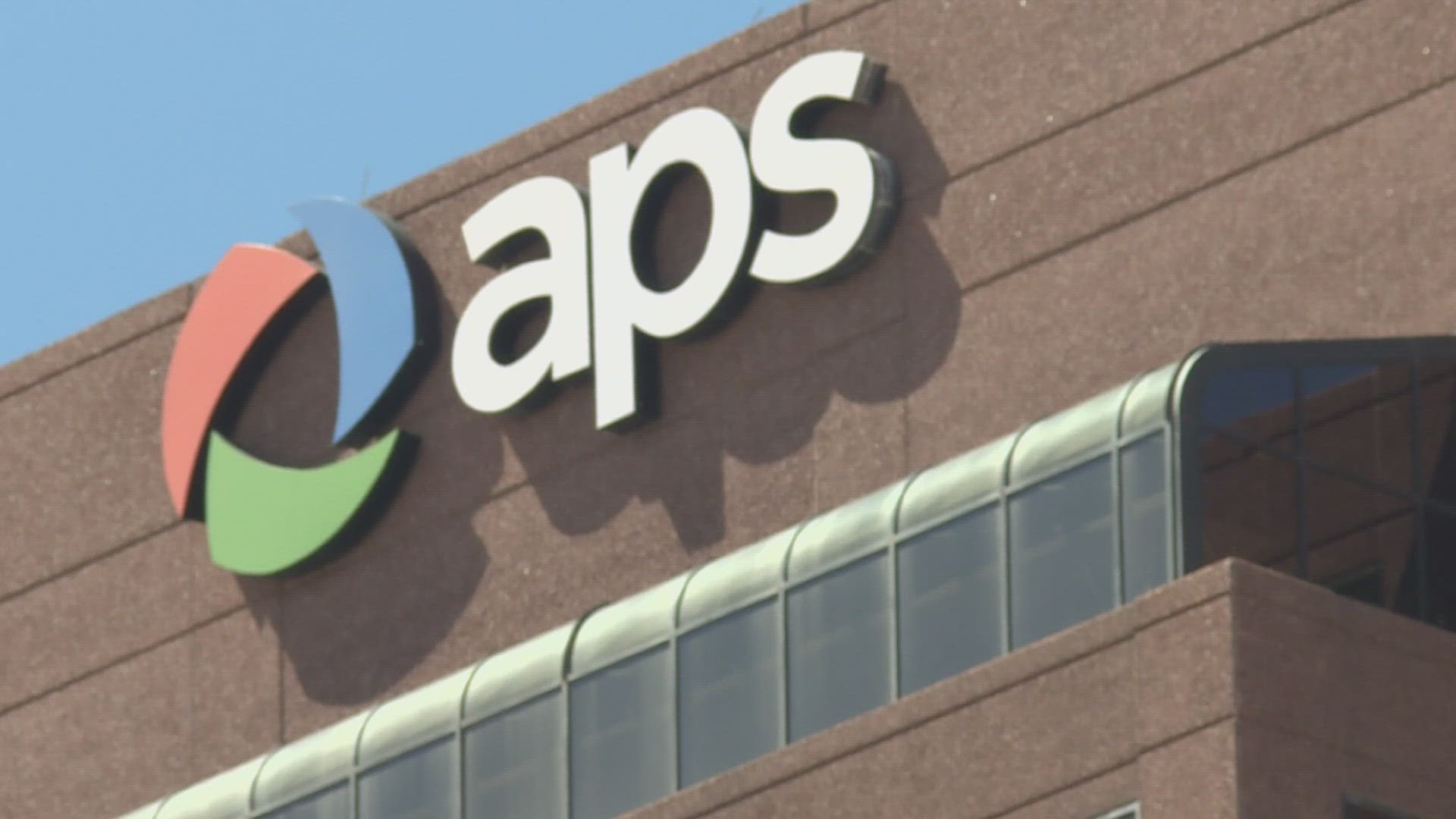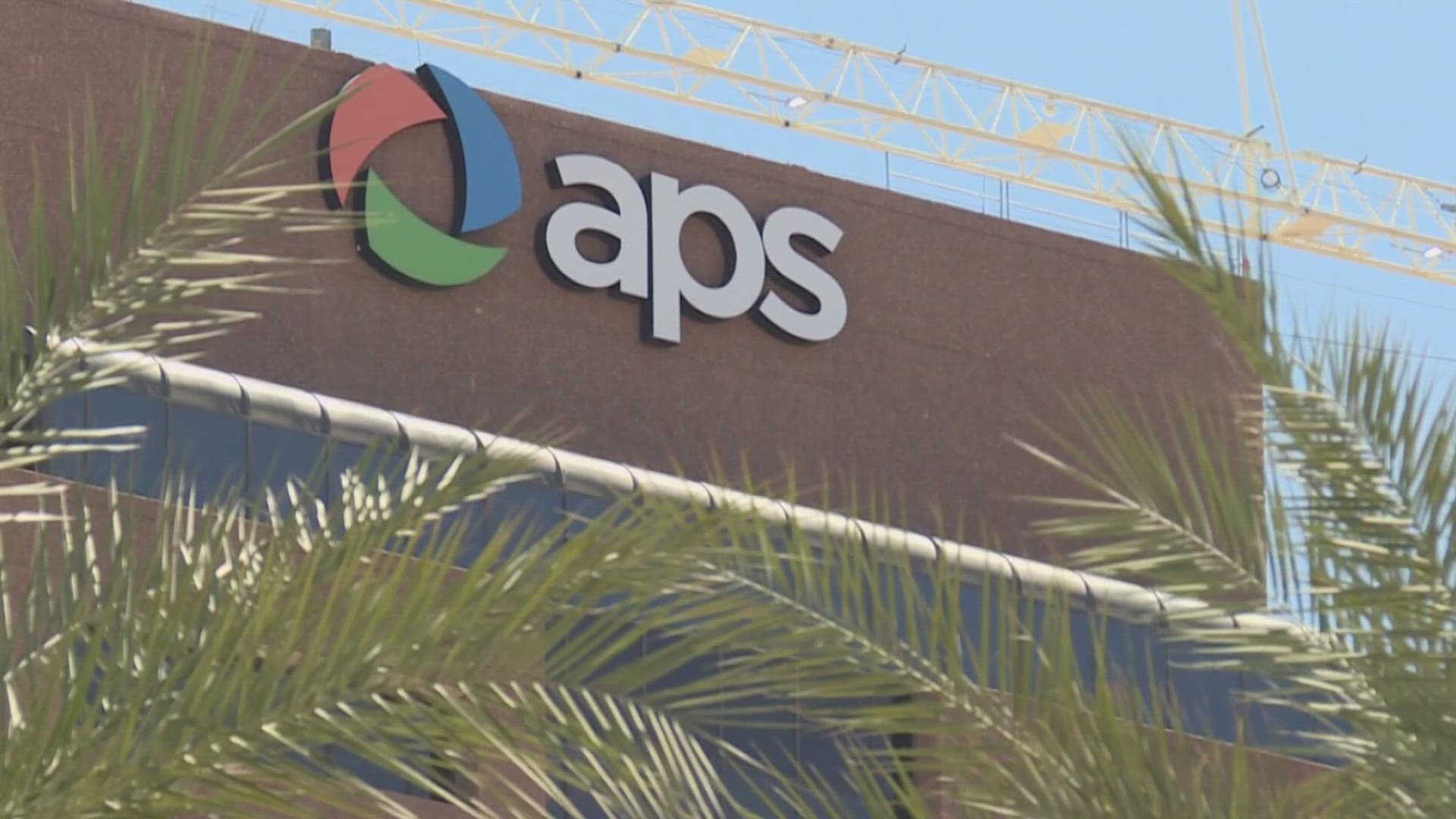PHOENIX — The Arizona Corporation Commission votes Thursday on how much APS can raise its rates beginning in March. But a memo obtained by 12News shows that Wall Street is already predicting how two of the commissioners are going to vote.
Commissioners Kevin Thompson and Nick Myers met with analysts from financial advisory firm Guggenheim Partners last year on three occasions.
Guggenheim issued a three-page financial analysis on Feb. 7 that said, in part, the current commission has shown a willingness to act independently of judges – which they can do. They added, “This is also consistent with what they (Thompson and Myers) told us during two separate meetings we held along with investors.”
The memo takes issue with Arizona administrative law Judge Sarah Hapring’s decision to reduce the amount of revenue by $54 million APS would collect from its base rate.
“We’ll be looking in particular to Commissioner Myers and Commissioner Thompson for their input and guidance to the rest of the ACC in how to address this unfortunate and unexpected development,” the memo states. It says Guggenheim analysts are optimistic the commission will “amend” the proposal “to bring it back in line” with the commission’s pattern of voting habits. Investors express optimism that commissioners will “navigate past the failings” of the judge’s recommended order and side with “institutional investor interests.”
Bob Burns is a longtime Republican leader who served on the corporation commission for 8 years and in the Arizona Legislature for 18. Burns and Thompson have sparred about the ethics of the current commission. The Guggenheim memo, Burns said, shows another too-cozy relationship between regulators and the investors of power companies they regulate.
“As a ratepayer, which I am now, it’s pretty scary,” Burns said. “When you have a high level of undue influence which I believe is evident here, the ratepayers are hung out to dry.”
Former Republican commission chair Bob Burns discusses why he believes Arizona regulators are improperly influenced by Wall Street.
12News asked Thompson and Myers why having discussions about “ratemaking, setting rates of return, regulatory lag” and “other topics” – as described by Guggenheim – during an open rate case does not amount to ex parte (unauthorized communication) violations.
A spokesperson for Thompson said the question is based on a fundamental misunderstanding because Thompson only has “high-level discussions” with investors and does not discuss “specifics or details about pending or open matters.”
“We do not discuss open rate cases under ex parte with anyone, including the public, regardless of whether they are a party to a pending case,” said Ryan Anderson, policy advisor for Thompson.
The memo also links to Guggenheim notes of an August meeting Titled “Deep Dive in the Desert.” The document says Guggenheim analysts discussed with Myers and Thompson their views on “ratemaking, setting rates of return, regulatory lag, among other topics.”
Burns said stock analysts should testify in public during the time a rate case is open.
“That way the public and everybody can hear what their desires are,” Burns said.
Asked about the memo and meetings, Guggenheim Partners did not respond to requests for comment.
12News has extensively reported on appeals to clarify the current code of ethics, meetings Thompson and Myers held with the investment community last year, the commission’s decision to dismiss a citizen’s ethics complaint against Thompson, and criticism about whether the meetings are appropriate.
A longtime consumer advocate who filed the ethics complaint against Thompson last year alleges the memo reflects a pattern.
“Based on these repeated, off-the-record, and unauthorized communications, as a ratepayer and a consumer advocate, I have zero confidence in the integrity and impartiality of this Commission,” said Abhay Padgaonkar.
12News has asked the commission’s executive director and legal counsel to clarify what constitutes “substantive merits of a contested proceeding,” as discussed in the commission’s code of ethics. They’ve declined past interview requests.
It would be up to the Arizona Attorney General’s Office to investigate allegations of ex parte violations.
Burns and Thompson at odds over ethics
Burns was known for championing transparency during his 8-year tenure on the commission before leaving office in 2021.
“It appears these investors are trying to tell the judge her calculations are wrong, and they are expecting the two commissioners to just go against the math. When I read it, it sounds like Guggenheim is pumping these guys up,” Burns said.
Thompson has previously stated he reaches out to the investment community to assure them there is “regulatory stability” in Arizona to encourage them to invest in Arizona utilities, which theoretically leads to better credit ratings. Claims alleging Thompson is improperly influenced by investors are “political accusations,” Thompson said.
The commission referred 12News to the commissioners’ public calendar which shows Thompson and Myers were scheduled to meet with Guggenheim on the morning of Aug. 16. Commissioners are required to make their calendars publicly available, which Thompson and Myers did. However, “putting private meetings in a public calendar does not inform the public about what was discussed,” Padgaonkar said.
Up to Speed
Catch up on the latest news and stories on the 12News YouTube channel. Subscribe today.


